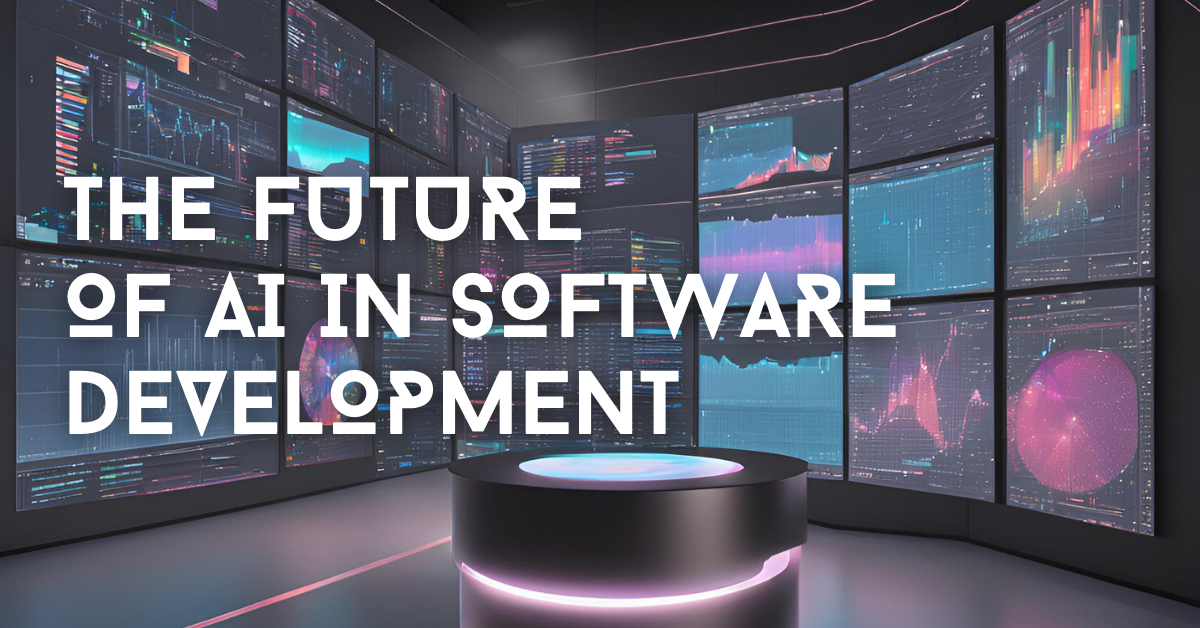Artificial Intelligence (AI) is revolutionizing software development by enhancing efficiency, accuracy, and innovation. By automating repetitive tasks, optimizing code, and enabling predictive analysis, AI is reshaping the software development landscape.
AI-Driven Automation in Coding
AI-powered tools are significantly transforming the coding process:
- GitHub Copilot: Developed by GitHub in collaboration with OpenAI, Copilot assists developers by suggesting code snippets and generating functions, thereby reducing development time and improving code quality. It analyzes vast codebases to provide relevant suggestions, enabling developers to focus on complex problem-solving.
- Tabnine: An AI coding assistant that offers code completion and an AI-powered chat feature. Supporting over 80 programming languages, Tabnine integrates with major Integrated Development Environments (IDEs) such as VS Code, Eclipse, and JetBrains IDEs, automating various aspects of the coding workflow.
- Qodo: Formerly known as Codium, Qodo is a code integrity platform that utilizes AI throughout the software development lifecycle. It provides features like code generation and completion, AI-powered chat, test generation, planning, and coverage, aiming to enhance code quality and developer productivity.
- Devin AI: Developed by Cognition Labs, Devin AI is an autonomous AI assistant capable of performing software engineering tasks such as coding, debugging, planning, and problem-solving. It can create websites, develop projects, and compile computer vision models by generating plans, source code, and benchmark tests, thereby automating complex coding tasks.
Enhancing Testing and Debugging
AI-driven testing tools automate test case generation, bug detection, and suggest fixes, streamlining the quality assurance process. This leads to faster identification and resolution of issues, resulting in more reliable software. For instance, AI-powered debugging tools can identify and resolve errors in various types of software development, enhancing the overall quality of applications.
Predictive Analysis and Maintenance
AI enables predictive analysis by identifying potential problems before they occur, allowing for proactive maintenance. This reduces downtime and enhances system reliability. For example, AI can analyze historical test data to predict software areas with a high possibility of failing, facilitating targeted testing and reducing the risk of releasing a product with undetected bugs.
Real-World Applications of AI in Software Development
Several organizations have successfully integrated AI into their software development processes:
- Amazon Web Services (AWS): AWS introduced Amazon Q Developer, an AI tool designed to help developers focus more on creative coding by handling routine tasks. This initiative addresses the issue that developers spend only about an hour per day on actual coding, with the rest consumed by other tasks.
- Meta: Meta is developing an internal AI tool named Metamate to enhance business productivity. Leveraging its Llama language model, Metamate assists in coding, research, and drafting communications, aiming to integrate AI more deeply into business operations.
- Tesla: Tesla's Full Self-Driving (FSD) software utilizes AI to process vast amounts of data from its vehicles, enabling autonomous driving capabilities. The recent update to version 13 has enhanced every aspect of Tesla's end-to-end driving network, marking a significant advancement in the company's autonomous driving capabilities.
Challenges and Ethical Considerations
Implementing AI in software development presents challenges, including security, privacy, and ethical concerns. Ensuring transparency, accountability, and addressing potential biases in AI algorithms are critical for responsible AI integration. Organizations must navigate these challenges to harness AI's full potential in software development.
The Future Outlook
The future of AI in software development is promising, with expectations of further automation and the potential for AI to autonomously develop complex software solutions. This evolution will require developers to adapt, focusing on strategic and creative aspects of development. Embracing AI technologies can lead to more efficient development processes and innovative software solutions.
In conclusion, AI is set to play a pivotal role in the future of software development, driving efficiency and innovation while presenting new challenges and opportunities for developers.
Sources:
- Tabnine
- Devin AI
- AI in Software Testing: Strategies for Enhanced QA & Debugging
- AI in Software Testing: Types, Use Cases and Process
- Amazon says developers spend a surprisingly small amount of time per day coding
- Meta rolls out internal AI tool as it pushes into business market
- AI in Software Development - IBM
- 5 ways AI will change the software development life cycle
Author: Lukáš Stašák, Co-Founder and Tech Lead at Elevon.io
